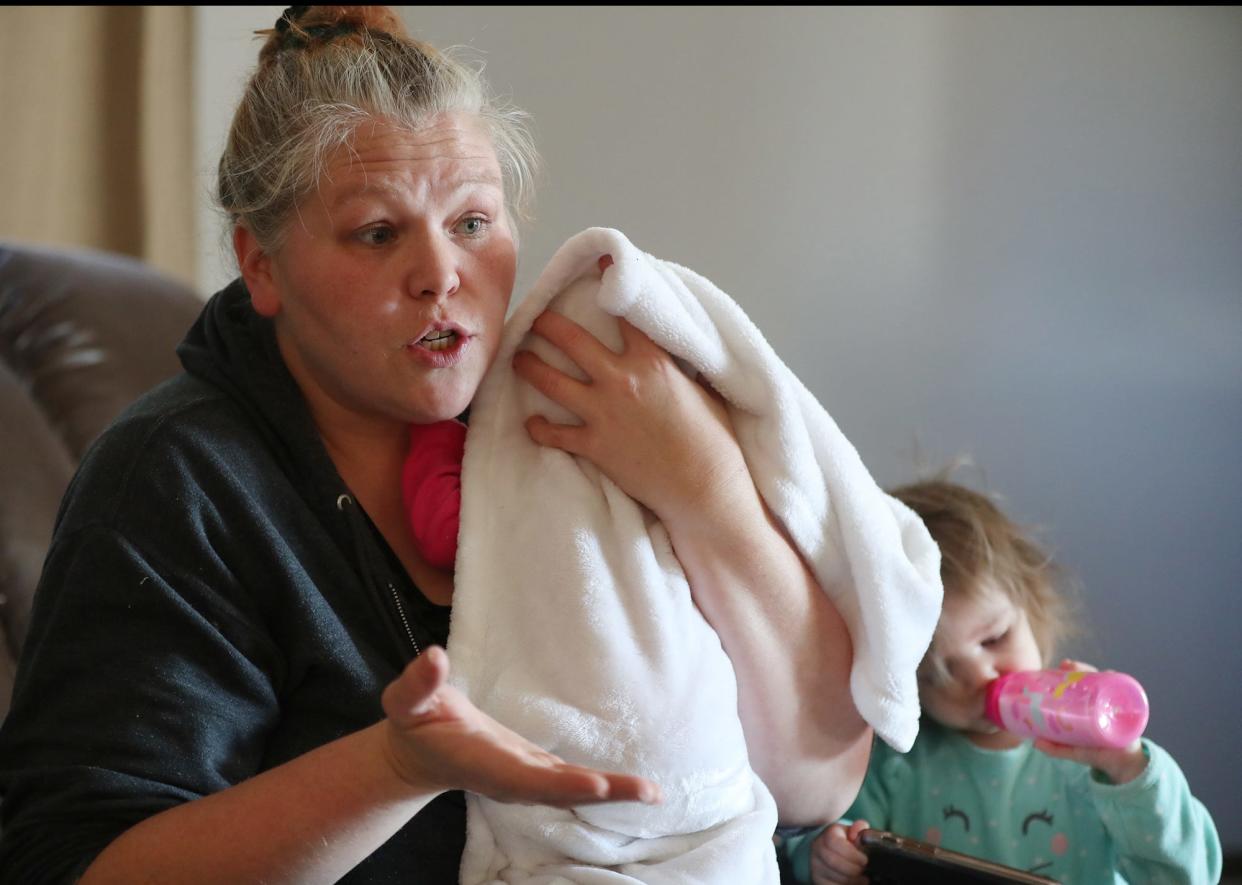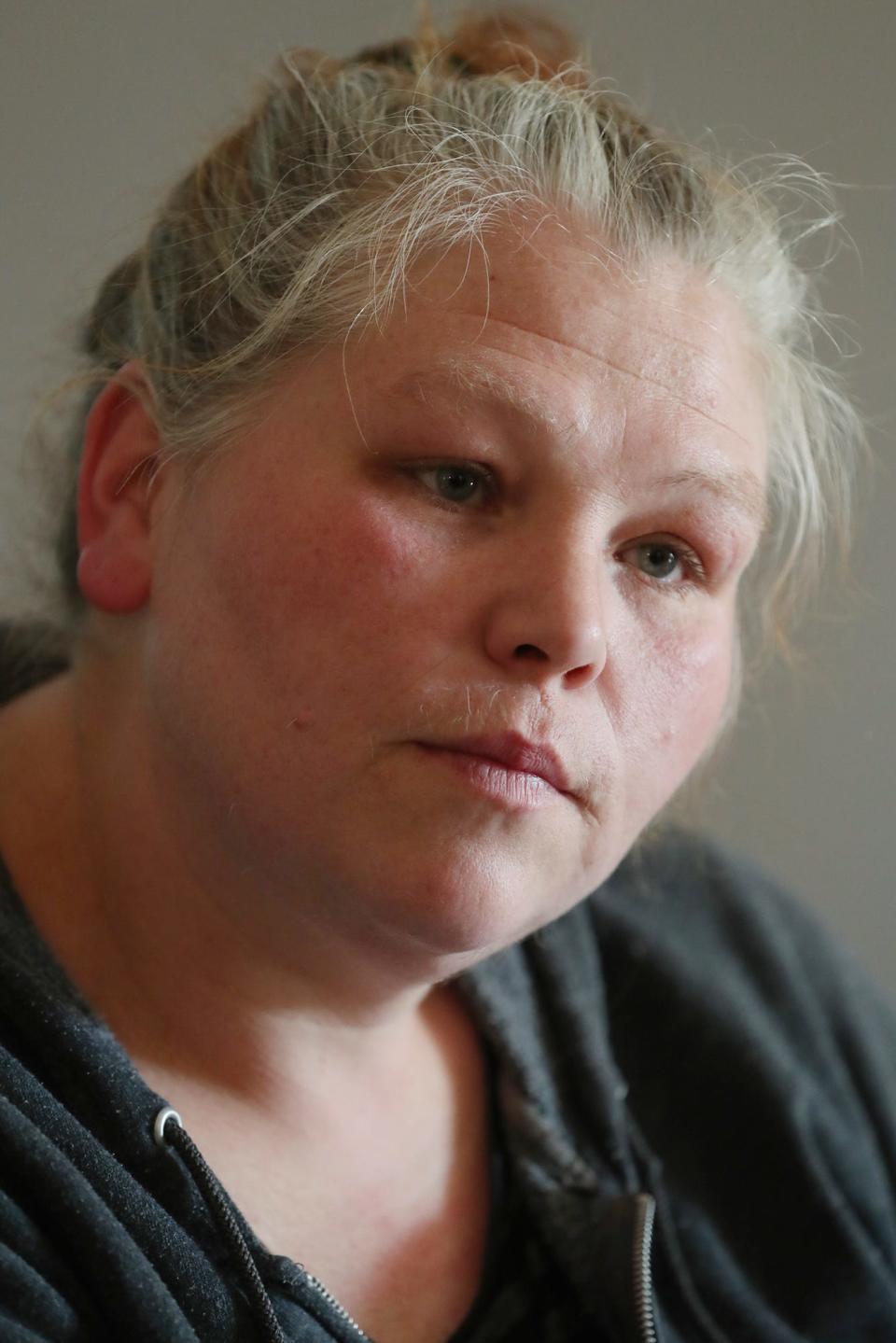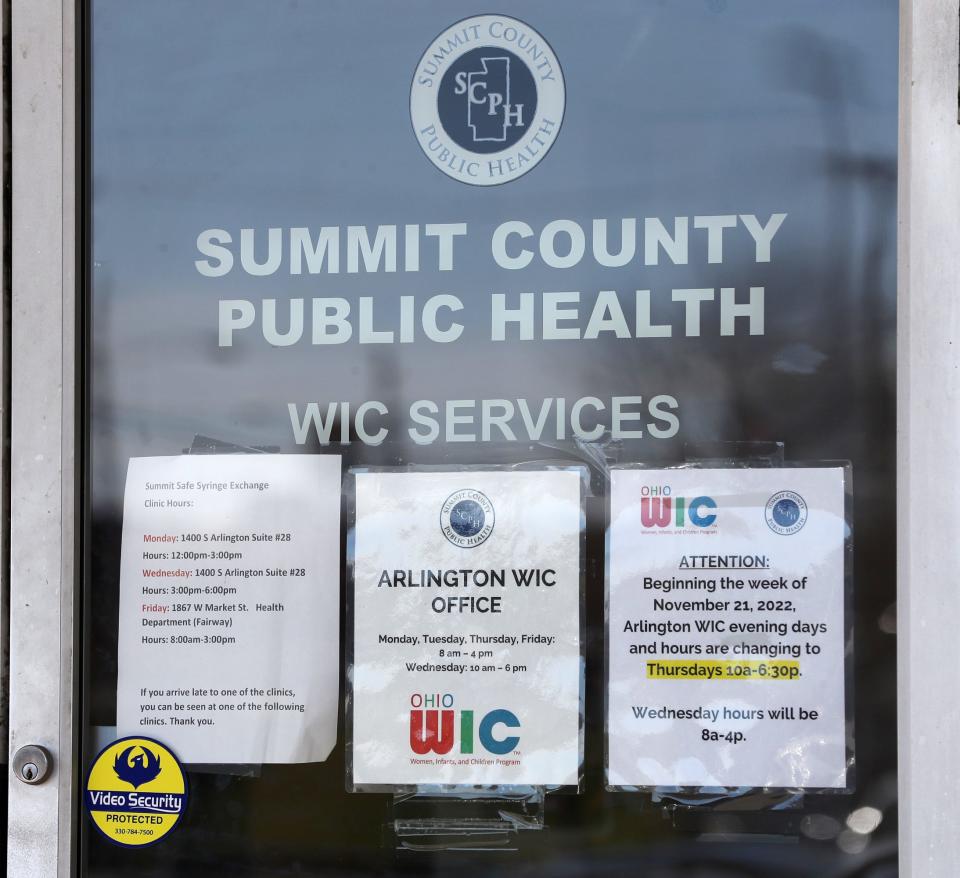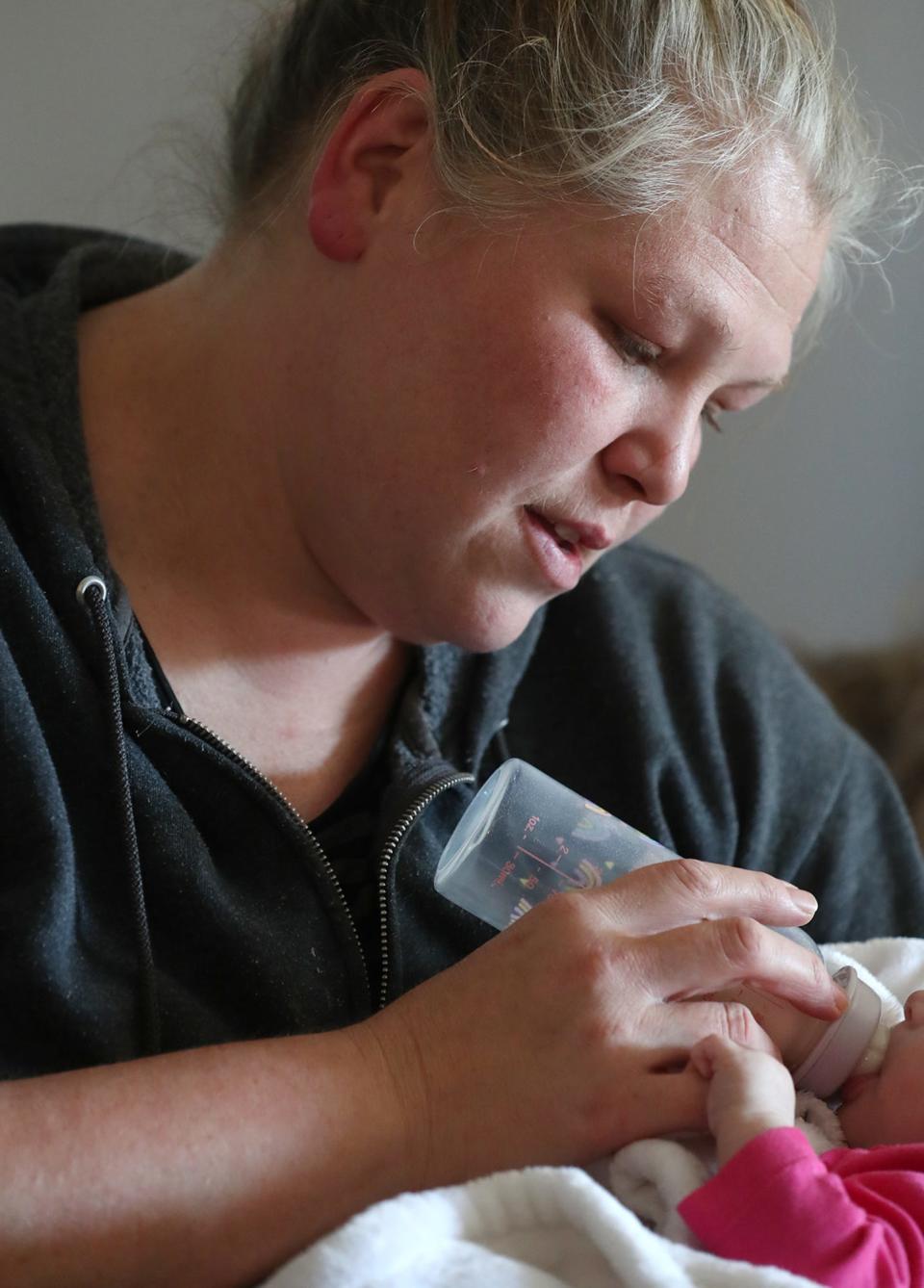Green foster mom fears mix of WIC and needle exchange clients bad for children

As a foster mom who has cared for children with fetal alcohol syndrome and prenatal exposure to illicit drugs, Green resident Nicole Welch has seen and dealt with the damage the dangerous combination can cause.
Like impaired growth, birth defects and altered brain development. She's seen the withdrawal symptoms in newborns and the problems that linger on.
That's one reason Welch was so disturbed during a visit to the Summit County Women, Infants and Children office on Arlington Street in Akron, where she observed WIC and Summit Safe Syringe Exchange clients together in the same waiting room. Disturbed enough to contact the Summit County Public Health commissioner.
Drug program funds:Using opioid settlement dollars, Summit County funding addiction programs in county ERs
Fighting drugs: 'We have to build hope': Summit County ramps up resources to prevent overdoses
The mix of WIC moms who might have children with them and syringe clients with containers of used hypodermic needles was a disaster waiting to happen, she thought.
"Needle clients were waiting in the waiting room with boxes (of needles)," she said Thursday. "It didn't seem like a program that caters to children should have been in the same small waiting room with sharps."

Sharps is a medical term for needles — or other devices with sharp points or edges — whether they're used to inject drugs by addicted individuals or by medical professionals.
'Full of zero- to 5-year-olds'
During the coronavirus pandemic, WIC clients weren't required to bring children to the office, where they are given health exams, Welch said. But that requirement returns in January, creating a potential nightmare scenario in Welch's eyes.
"That place is going to be full of zero- to 5-year-olds running around," she said.
Even before the requirement returns, she said, some women have brought children to the office out of necessity. The WIC clients may have to use a bus to travel there, and may not have someone to watch their children, she said.
"It doesn't make any common sense about running them together," she said.
During one visit, she said, needle clients in the waiting room didn't use the sharps containers, made of rigid plastic material to safely contain needles, provided by the syringe program.
"They had a cellphone box and a tissue box — no sharps containers at all," she said.

Welch fears that rambunctious toddlers could come into contact with the needles if the improvised containers are dropped or knocked over. What's more, she said, exposing the children to clients of the needle program might distort their perception of illicit drug use.
"You normalize it to the point you can't come back from it," she said.
A syringe program advocate
The Green mom said she's not opposed to the needle exchange program itself; it helps reduce disease passed on by dirty needles, a key reason for the program. It also gives health professionals a chance to interact with clients who can be reluctant to seek help with their addiction or other medical services.
Donna Skoda, Summit County Public Health commissioner, said in a phone interview Nov. 3 that she remembered her conversation with Welch and is aware of the scheduling overlay between the syringe program and WIC clients at the Arlington location.
She said the program has been operating in the rented space on Arlington for several years and has grown in popularity.

During COVID-19, the chance of interaction between WIC children and syringe clients was low because WIC didn't require children to come in. That will change in January, and Skoda said her agency is working on a solution.
"We had already started planning that," Skoda said. "That's where it's at."
Skoda said the syringe exchange program has grown since it began several years ago. The program distributes clean needles and gives clients access to HIV and hepatitis C testing, the drug-overdose antidote naloxone, and referral to treatment, if requested. Some clients have been motivated to enter substance abuse programs, she said.
"Every time you have a person in front of you (the) interaction … is a huge benefit," she said. "… We've had people who have gone into recovery or treatment programs."
In June, Skoda said, the program distributed 46,900 needles, and so far this year has collected 141,612 used syringes.
More about needle programs
According to the U.S. Centers for Disease Control and Prevention, syringe exchange programs have helped reduce HIV and hepatitis C infections by 50% among people who inject drugs. Most states have such programs, according to the Kaiser Family Foundation, with about 16 located in Ohio. In the U.S., the foundation's statistics show, more than 400 programs operate in 43 states.
On Friday, a Summit County Public Health official said the agency will be changing dates and times for the Arlington location and others by the end of the month.
Support local journalism:6 reasons why you should subscribe to the Akron Beacon Journal
When told about the change, Welch said she was pleased to hear a solution had been reached, but hoped it would not restrict hours for WIC clients.
"I feel shocked that it ever started …," she said. "At least it's getting fixed."
Leave a message for Alan Ashworth at 330-996-3859 or email him at aashworth@gannett.com. Follow him on Twitter at @newsalanbeaconj.
This article originally appeared on Akron Beacon Journal: Green foster mom fears mix of WIC, needle exchange clients bad for kids

